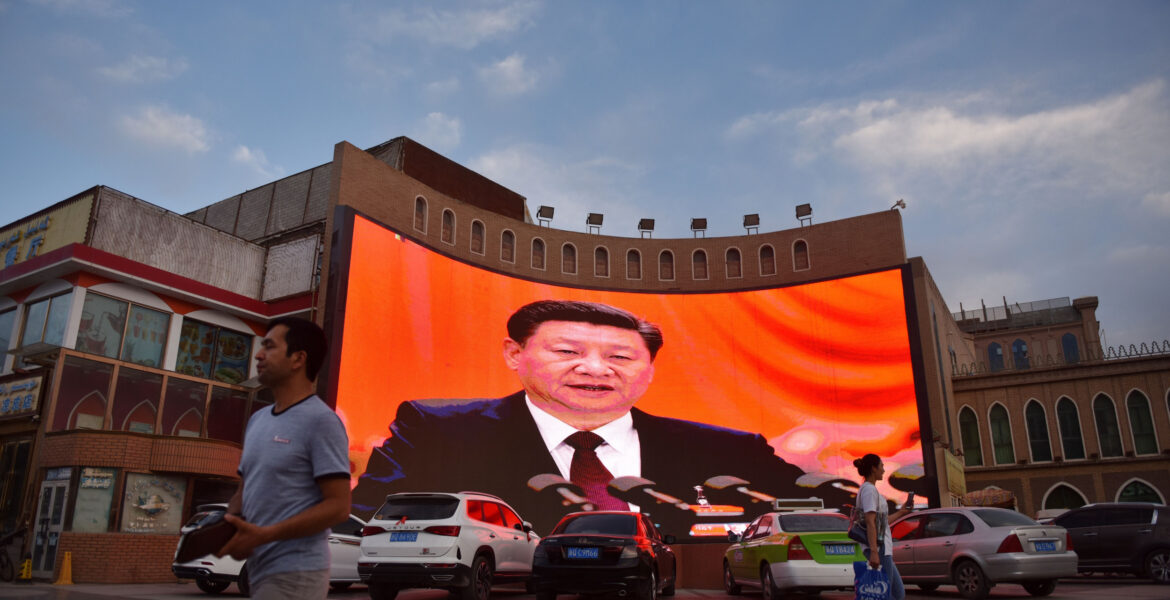China denounced a French parliament resolution weeks ago, accusing Beijing of committing genocide against its Uyghur Muslim population, a move that has soured relations before the Winter Olympics.
The resolution joined a chorus of western nations that have condemned Beijing for what they say is the incarceration of roughly one million Uyghurs in forced labour camps, calling "the atrocities perpetrated by the People's Republic of China against the Uyghurs crimes against humanity and genocide."
Beijing rejects genocide and the existence of forced labour camps in Xinjiang, accusing Uyghurs testifying abroad about the region of being paid liars.
The National Assembly of France joined the parliaments of Canada, the Netherlands, the United Kingdom and Belgium in passing similar resolutions.
China has been officially accused of perpetrating genocide in Xinjiang by the US government.
Last year, the Dutch Parliament passed a similar resolution which earned a sharp rebuke from Beijing.
Italy and Belgium have condemned China over Xinjiang but did not use the term genocide.
China, on the other hand, dismisses such claims and lashed out at French the parliamentarians.
At a regular news conference, foreign ministry spokeswoman Zhao Lijian stated, "
The French National Assembly's resolution on Xinjiang overlooks facts and legal understanding and shamelessly interferes in China's domestic affairs. China is adamantly opposed to it."
The Chinese Embassy in France slammed the action, saying it was illogical and would hurt bilateral relations.
"The French side is fully aware of the resolution's folly and danger. The embassy stated in a statement that it must "show consistency between speech and deed" and take "real initiatives" to ensure the healthy growth of Sino-French ties.
The opposition Socialists in France's lower chamber of parliament presented the proposal, which was endorsed by President Emmanuel Macron's Republic on the Move (LREM) party.
France's National Assembly passed a non-binding resolution with 169 votes in favour and one vote against.
It urged the French government to take "the necessary measures within the international community and in its foreign policy toward the People's Republic of China" to safeguard the Xinjiang region's minority population.
"China is a major player in the world. The Chinese people are adored by us. But we will not be swayed by lies from a dictatorship that is counting on our fear and greed to carry out a genocide in broad daylight," Olivier Faure, the leader of the Socialist Party, stated.
He told lawmakers of circumstances within internment camps where men and women were unable to lie down in cages, were exposed to rape and torture, and were forced to undergo organ transplants.
The French government has refused to label China's treatment of the Uyghur minority "genocide," claiming that the phrase is a legal term that can only be substantiated by a judicial probe.
Beijing has repeatedly rejected down pleas from the United Nations High Commission for Human Rights to study the situation in the region.
During a speech before the European Parliament, President Emmanuel Macron, who has tried to stay out of the increasingly tense relationship between China and the United States, was questioned about the Uyghurs.
He told campaigning MEP Raphael Glucksmann, "France discusses this in a very explicit manner in all of our bilateral conversations (with Beijing)."
He stated that he supports an EU law that would "limit the import of items that are the consequence of forced labour" and that European firms working in China should be required to monitor supplier chains.
In Xinjiang, human rights organisations claim to have discovered evidence of mass detentions, forced labour, political indoctrination, torture, and forced sterilisation.
Beijing rejects genocide and the existence of forced labour camps in Xinjiang, accusing Uyghurs testifying abroad about the region's realities of being paid liars.
China justified the Xinjiang camps as vocational training facilities aimed at decreasing the attraction of Islamic extremism after originally denying their existence.
The United States has imposed penalties on a rising number of Chinese leaders and corporations over their treatment of Uyghurs, prompting Beijing to retaliate with tit-for-tat measures.
The announcement comes on the eve of the 2022 Winter Olympics in Beijing.
Several western countries, notably the United States, the United Kingdom, and Australia, have declared "diplomatic boycotts" of the games and will not be sending representatives.
China has sanctioned European, British, and American legislators, as well as Xinjiang academics and a London legal company.
Petros Aramidis is a geopolitical analyst based in Athens.


